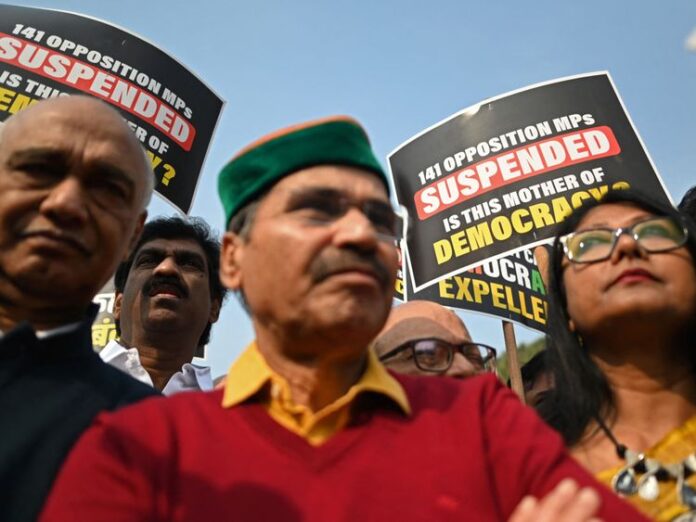NEW DELHI: India’s parliament on Thursday passed the country’s most significant criminal justice reform since the British colonial rule.
The reform updates the Penal Code and two other laws that date back to the 19th century, removing obsolete references to the British crown, clarifying the definition of “terrorism” crimes, and adding new penalties for mob violence and gender-based offences.
Home Minister Amit Shah announced the three proposed laws in August, saying that the old laws were meant to “reinforce colonial rule” and were no longer relevant.
He said to the parliament on Thursday, “The aim of the three bills is not to penalize but to deliver justice.”
The new laws sailed through both chambers of parliament in two days with little discussion, following the suspension of almost 150 opposition legislators over the past week for demonstrating against a different matter.
The laws would enact the death penalty for those who commit mob killings and rape a child, and a minimum of 20 years in prison for gang rape.
They also establish community service for minor offences to reduce the severe backlog in Indian courts, which have millions of cases waiting.
The laws also increase police authority over the arrest of suspects and broaden terrorism charges to cover acts that could endanger India’s independence or “financial stability”.
India’s Penal Code and other laws regulating the police and courts were enacted in the 19th century, when the country was under British rule.
The legal reform is the most recent attempt by Prime Minister Narendra Modi government in its crusade to erase the remaining traces of colonial domination from India’s historical records, cityscape and political structures.
Modi’s government has enacted several laws through parliament this week in the absence of more than half of the opposition legislators.
They had been demonstrating against a security violation last week that allowed a civilian to access the floor of the lower house and detonate a smoke device.
Parliament also approved a telecoms bill that empowers the government to temporarily seize and halt telecom services for national security reasons.






